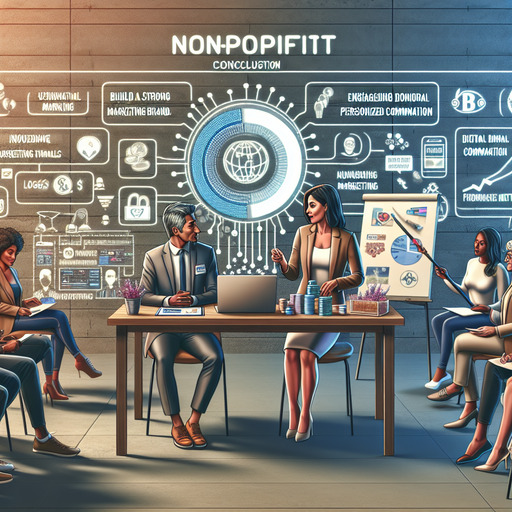
-
Table of Contents
- Effective Non-Profit Marketing Strategies: Engaging Donors and Amplifying Your Cause
- Understanding the Importance of Non-Profit Marketing
- 1. Building a Strong Non-Profit Brand
- 2. Leveraging Digital Marketing Channels
- 3. Engaging Donors Through Personalized Communication
- 4. Innovative Fundraising Marketing Techniques
- Conclusion: Amplifying Your Impact
- Questions and Answers
Effective Non-Profit Marketing Strategies: Engaging Donors and Amplifying Your Cause
In today’s competitive landscape, non-profit organizations must adopt innovative marketing strategies to stand out and effectively engage donors. With limited resources, non-profits need to be strategic in their approach to marketing, ensuring that every effort contributes to their mission. This article explores actionable strategies for non-profit marketing, focusing on digital platforms, branding, and donor engagement.
Understanding the Importance of Non-Profit Marketing
Non-profit marketing is crucial for raising awareness, attracting donors, and driving engagement. By leveraging effective marketing strategies, non-profits can amplify their message and reach a broader audience. Let’s delve into some key strategies that can make a significant impact.
1. Building a Strong Non-Profit Brand
Your brand is the essence of your organization. It communicates your mission, values, and the impact you aim to achieve. A strong brand helps build trust and credibility with your audience.
- Define Your Mission: Clearly articulate your mission and values. Ensure that all marketing materials consistently reflect these core elements.
- Visual Identity: Develop a cohesive visual identity, including a logo, color scheme, and typography, that resonates with your audience.
- Storytelling: Use storytelling to connect emotionally with your audience. Share impactful stories of those you’ve helped to illustrate your mission in action.
2. Leveraging Digital Marketing Channels
Digital marketing offers cost-effective ways to reach a wide audience. By utilizing various online platforms, non-profits can enhance their visibility and engagement.
- Social Media: Platforms like Facebook, Instagram, and Twitter are powerful tools for non-profit social media marketing. Share updates, success stories, and calls to action to engage your followers.
- Email Marketing: Build a robust email list and send regular newsletters to keep your supporters informed and engaged.
- SEO and Content Marketing: Optimize your website for search engines and create valuable content that addresses the interests and concerns of your audience.
3. Engaging Donors Through Personalized Communication
Donor engagement is vital for sustaining support and fostering long-term relationships. Personalized communication can significantly enhance donor retention.
- Segment Your Audience: Use data to segment your audience based on their interests, donation history, and engagement level.
- Personalized Messaging: Tailor your messages to resonate with each segment, making donors feel valued and appreciated.
- Thank You Campaigns: Implement thank you campaigns to express gratitude and show donors the impact of their contributions.
4. Innovative Fundraising Marketing Techniques
Fundraising is at the heart of non-profit operations. Innovative techniques can help maximize donations and expand your donor base.
- Peer-to-Peer Fundraising: Encourage supporters to create their own fundraising campaigns on your behalf, leveraging their networks.
- Cause Marketing: Partner with businesses to create mutually beneficial campaigns that promote your cause and their brand.
- Virtual Events: Host virtual events such as webinars, online auctions, or virtual galas to engage donors and raise funds.
Conclusion: Amplifying Your Impact
By implementing these non-profit marketing strategies, organizations can effectively engage donors, enhance their brand, and amplify their impact. Remember, the key is to remain authentic, consistent, and focused on your mission.
For further insights into non-profit marketing strategies, consider exploring this Wikipedia page on Nonprofit Organizations.
Questions and Answers
Q1: How can non-profits effectively use social media for marketing?
A1: Non-profits can use social media to share impactful stories, engage with followers through interactive content, and run targeted ad campaigns to reach a broader audience.
Q2: What are some cost-effective digital marketing strategies for non-profits?
A2: Cost-effective strategies include leveraging social media platforms, optimizing website content for SEO, and utilizing email marketing to maintain regular communication with supporters.
Q3: How can non-profits improve donor retention?
A3: Non-profits can improve donor retention by personalizing communication, expressing gratitude through thank you campaigns, and regularly updating donors on the impact of their contributions.
If you’re interested in learning more about our services or have questions about this blog, please reach out to us via our contact page.